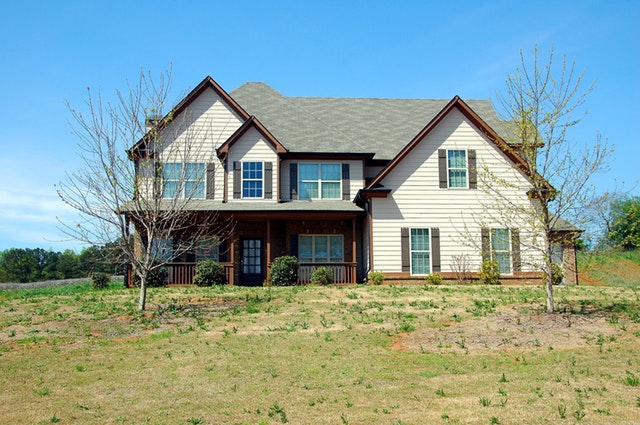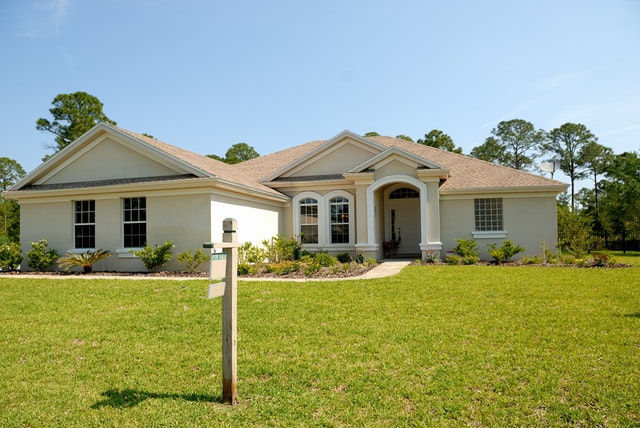According to data compiled by Realtor.com in the fourth quarter of 2019, it is still more affordable overall to rent versus buy a home — but just barely. The median monthly mortgage payment at the end of 2019 was $1,600, while the median monthly rent payment was $1,319. This is largely due to steadily-increasing rates, rising home prices, and near-record-low mortgage rates.
 The Realtor.com study looked at 593 counties across the country. As compared to the fourth quarter of 2018, the average monthly cost of renting a home increased 4%, up from $1,254, while the average monthly cost of homeownership actually declined 1%, falling from $1,658. These numbers represent exactly 30% of a homeowner’s gross income and 25% for renters, based on median household income.
The Realtor.com study looked at 593 counties across the country. As compared to the fourth quarter of 2018, the average monthly cost of renting a home increased 4%, up from $1,254, while the average monthly cost of homeownership actually declined 1%, falling from $1,658. These numbers represent exactly 30% of a homeowner’s gross income and 25% for renters, based on median household income.
A Turning Tide
In a stunning 84% of the 593 counties that were part of the study, renting is less expensive than buying. The average home price in these areas is 260% higher than the national median, while rent prices average about 79% more than the national median.
Interestingly though, 26 of the 593 counties experienced the opposite for the first time ever: It became more affordable to purchase a home than to rent, even if only by a narrow margin. The largest metropolitan areas in which homeownership is more economical than renting now include Bronx County, New York; the greater Cleveland area; Columbia, South Carolina, and the surrounding areas; Indianapolis, Indiana; and Camden County, New Jersey, which includes Philadelphia, as well as cities in Maryland and Delaware. In 16% of the counties analyzed, buying a home is less expensive monthly than renting, which is up from 12% in 2018.
On the other end of the spectrum, several large counties made the switch from being more affordable to buy a home to more affordable to rent. The top five include the Wichita Falls, Texas, area; Harrisburg-Carlisle, Pennsylvania; Luzerne County, Pennsylvania; the Greensboro, North Carolina metro area; and Craven County, North Carolina.
With the costs of homeownership becoming more favorable over the past year, the gap between renting and buying a home is more narrow than it ever has been in the U.S. If you are in the market for a new home, be sure to contact your trusted real estate professional.
 Investing in real estate remains one of the best ways to accumulate wealth in America. There are six ways to get started in real estate investing. One way does not require any investment capital, just an investment of your time. Ways to get started include investing in a REIT, buying an incoming-producing property, using a buy-and-hold strategy, flipping houses, crowdfunding, and wholesale deals.
Investing in real estate remains one of the best ways to accumulate wealth in America. There are six ways to get started in real estate investing. One way does not require any investment capital, just an investment of your time. Ways to get started include investing in a REIT, buying an incoming-producing property, using a buy-and-hold strategy, flipping houses, crowdfunding, and wholesale deals. There are two times when it is best to buy a home. When you have to buy one and when you can afford to buy one. In general, owning a home is better than renting one because you are building up equity for yourself, instead of throwing your money away by helping the landlord buy the property with your rent money.
There are two times when it is best to buy a home. When you have to buy one and when you can afford to buy one. In general, owning a home is better than renting one because you are building up equity for yourself, instead of throwing your money away by helping the landlord buy the property with your rent money. It is important for everyone to take steps to diversify their assets. While many people take this to mean holding multiple stocks, bonds, and mutual funds in the market, this also includes branching out into the real estate industry. The real estate industry is far more stable than the stock market and provides a fantastic opportunity to generate reliable returns. At the same time, there are lots of options to choose from when it comes to investment properties.
It is important for everyone to take steps to diversify their assets. While many people take this to mean holding multiple stocks, bonds, and mutual funds in the market, this also includes branching out into the real estate industry. The real estate industry is far more stable than the stock market and provides a fantastic opportunity to generate reliable returns. At the same time, there are lots of options to choose from when it comes to investment properties. The National Association of Home Builders reported a housing market index reading of 74 in February; the index reading was one point lower than for January and was only two points below the highest reading of 76 reported in December. Readings over 50 indicate that most builders consider housing market conditions to be positive.
The National Association of Home Builders reported a housing market index reading of 74 in February; the index reading was one point lower than for January and was only two points below the highest reading of 76 reported in December. Readings over 50 indicate that most builders consider housing market conditions to be positive. Real estate investing is not only a great way to diversify assets but can also be used to generate both income and capital appreciation. While this is a fantastic opportunity, it is also important to choose investment projects carefully. It is critical to ask the right questions before making an offer on an investment property.
Real estate investing is not only a great way to diversify assets but can also be used to generate both income and capital appreciation. While this is a fantastic opportunity, it is also important to choose investment projects carefully. It is critical to ask the right questions before making an offer on an investment property.